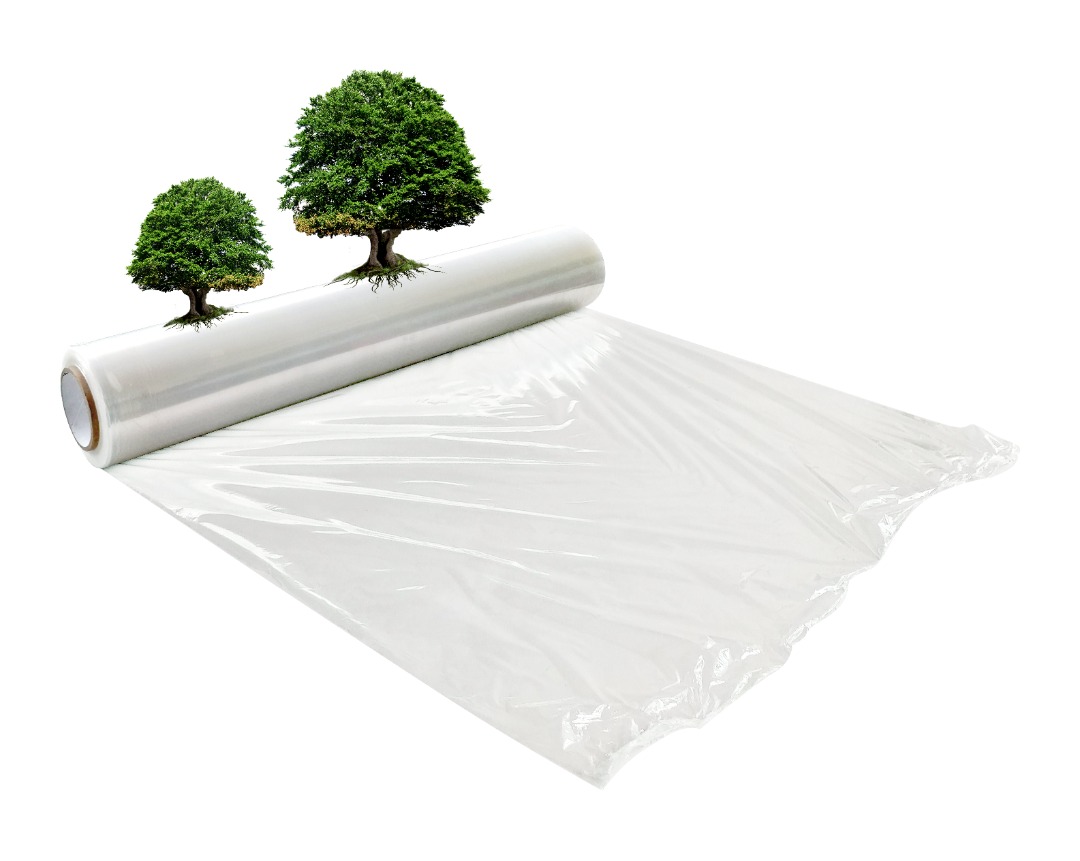
There is a growing movement around the topic of sustainability in the plastic industry.
We know that many people have voiced their concerns about how plastic pollution and waste greatly affect the ocean’s pollution level.
An alarming report by the Ellen Macarthur Foundation on the New Plastics Economy says that there would be more microplastics in the oceans than there are fish by 2050 and everyone is extremely concerned about it.
There is much pressure to reduce and stop using single-use plastics to reduce their harm to the environment, and the pandemic is not helping.
The demand for plastics, including medical uses, is expected to increase by 40% in packaging and 17% in other applications.
However, unknown to some, there are equally many others who are standing up.
They are heeding the call of going green and championing the need for sustainability.
These unsung heroes are also the players from the plastic packaging industry because they care about the environment.
Following the circular economy and polymer recycling dialogue, International E-Chem Chairman Paul Hodges expressed that there’s still a lot of work that has to be done in a minimal time.
“It’s very clear there’s a paradigm shift going on in the industry. Companies are waking up to the fact that waste plastics are a big issue — one that’s not going to go away. Single-use plastics are going to be in the firing line for the next few years — and business models simply must change”
This focus has gained substantial momentum, and we can see more players from the plastics supply chain committing to this movement as the world pushes for greener initiatives and circularity.
Challenges faced by the plastic industry in the sustainability space
Undoubtedly, plastics are an essential part of our everyday lives, and they are here to stay.
Plastic products come in all shapes and sizes, from the plastic bags we use to carry our groceries home to the packaging materials that come with our new gadgets and toys.
Plastic also keeps us safe, as it is widely used in the medical field, especially during this dangerous time of the Covid-19 pandemic.
We have seen an increase in its medical use in parts of the world, such as in Spain, Catalonia, and China, with an increment of 350% and 370%, respectively.
A survey research on plastic sustainability facts by ScienceDirect was conducted on several plastic manufacturing companies. This study aimed to discover the significant obstacles affecting sustainable plastic solid waste (PSW) recovery and recycling.
The results of that study showed that the major obstacles were:
Market share – Relatively small local and regional markets for recycled plastics
Cost and capacity – Lack of collection capacity
Technology – Slow pace of technology upgrading
Quality and demand – Lack of quality testing facilities and high-quality demand for recycled materials
Legislation and environmental concerns – Negative society image towards the plastic industries and lack of design for the environment
How The Plastic Industry Is Working Towards Sustainability in The Plastic Industry
Even with such challenges, the production of plastic must still go on.
Today we generate almost 400 million tons of plastics yearly. Global population increase and a growing middle class indicate that the need for packaging and plastic products is set to rise three-fold the amount in just a few decades.
Plastic still plays an essential role and meets the needs of businesses and daily life. It is a reliable and inexpensive way for stakeholders to produce everyday necessities to provide for the larger global community that is effective and inexpensive.
There are some single-use plastics that can be totally eliminated like straws, plastic bags, plates, cutlery, and stir sticks—there are some plastics that are still very much needed, particularly stretch films. These are plastics that are helpful to keep our packages protected, secured, and safely delivered.
Governments and stakeholders are working on strategic measures to tackle the challenges of the earth’s plastic woes to maintain sustainability in the plastic industry.
These are some of the efforts we, at Thong Guan, are taking towards our sustainability culture and strategy:
Thong Guan is working towards sustainability and transformative goals because we believe in plastic circularity.
Please see the summary LiveGreen Launch & Sharing Session on Plastic & Sustainability
This is why we launch our #LiveGreen campaign to empower our commitment to making sustainability possible for our customers and partners in this industry. Here are some of our current efforts:
(RE:DO) Recycling and reuse of waste matter – Recycling post-industrial and post-consumer waste (PCW) will help put plastics back into life by being recycled and repurposed. Reducing the usage of virgin plastics will help reduce waste reduction from the number of new plastics that are manufactured daily.
(RE:DUCE) Reduce – The reduction of plastics by using coreless products and thinner gauges will help reduce plastic waste.
(TG Bio) Using biobased resources – Harnessing the force of renewable feedstock from raw materials like corn starch (PTH – Ethylene) into plastic will help lower synthetic materials with natural resources. Less artificial, more nature is good for our environment.
(TG Bag2Earth) Compostable products – Self-composting plastic waste that breaks down will help combat typical plastic waste that never breaks down. Microbes will naturally consume these plastics. They will not end up lying somewhere in the ground forever like any regular plastic.
How can we make plastic more sustainable?
Yes indeed, we can make plastic more sustainable by recycling the reuse of other waste as raw materials to be reused as plastics again! We may not have reached the 100% mark yet, but with time and technology, we are surely getting there. It does take strategic effort from all stakeholders to spur changes of circularity in the plastic industry.
The future of plastic manufacturing lies in creating more sustainable plastic products made from recycled, biobased, and compostable materials that can be reprocessed into new products or decomposed back into the earth.
As a global plastic manufacturer, Thong Guan is also playing our part in innovating plastic products to be more environmentally friendly for all through our sustainable plastic products.
We are committed to progress our #LiveGreen initiative to move the global plastic market to green-friendly objectives.
Here are some ways that we can help you achieve your sustainable goals:
Bolt – Dependable and Consistent
Our latest hand stretch film dispenser helps reduce the amount of film used and helps maximize shipping and shelf space.
Bolt is consistent, easy to use, and comfortable when handling. It is a fatigue fighter that operators can use with ease.
Lite and conveniently handles thin gauge stretch film to help you dispense pre-stretched film on a dispenser.
The bolt handles light (as low as 5um) to heavy loads (7.4um gauge films are not an issue at all) and wraps to the bottom to keep your pallet safe and secure.
Nano Zero – Zero Yet Mighty
- Nano Zero is possibly the greenest stretch film you can get, especially when you order them bio-based.
Made without paper cores, you can potentially eliminate 200 grams per paper core. That a whopping 72 kg on a 360 cores pallet.
It is cost-effective, strong, suitable for stretch film packaging, and makes achieving your sustainability goals much more attainable.
It is thin-gauge pre-stretched that prevents work hazards where operators can handle manual wrapping with ease.
With its nano-layered structure properties, it is built for toughness.
Maxstrech Green – Uncompromised Quality For The Environment
Our Maxstrech Green from our Maxstretch series is cost-effective and uses less film consumption per pallet.
Less film doesn’t mean lesser quality. It performs the same and lesser plastics into the environment.
It uses film from 30% recycle contents and thin gauge (10 – 15 um and below), which will help reduce plastic waste. Its stiff film property enables you to gain optimal load containment and the ultimate performance for your machine film wraps.
Compostable Plastic Bags – Reducing Carbon Emissions
We also believe that flexible packaging like plastic bags should be made compostable and biodegradable to break down and decompose after it has served its purpose. It helps to reduce carbon emissions during the production process.
Usually used for food waste, compostable bags are now gaining popularity. New Zealand has started a waste management initiative to separate food refuse in a special compostable bag and bin for food waste collection. Waste will then be sorted out and disposed of accordingly.
Compostable bags will help break down single-use plastic to reduce plastic waste.
Creating sustainability in the plastic industry with a circular economy
When the inevitable usage of plastic increases, we must step up the plate to make a difference. One party alone cannot win this fight for sustainability and the building of circularity for remanufacturing.
We invite all stakeholders in the plastics industry to join hands with us in promoting our cause to #LiveGreen while fulfilling consumer preferences for a cleaner and greener earth.
Let us connect and show you how we can help you achieve your sustainability through waste reduction and economic feasibility goals too.
Contact us at info@thongguan.com for more info on #LiveGreen programs or products.





